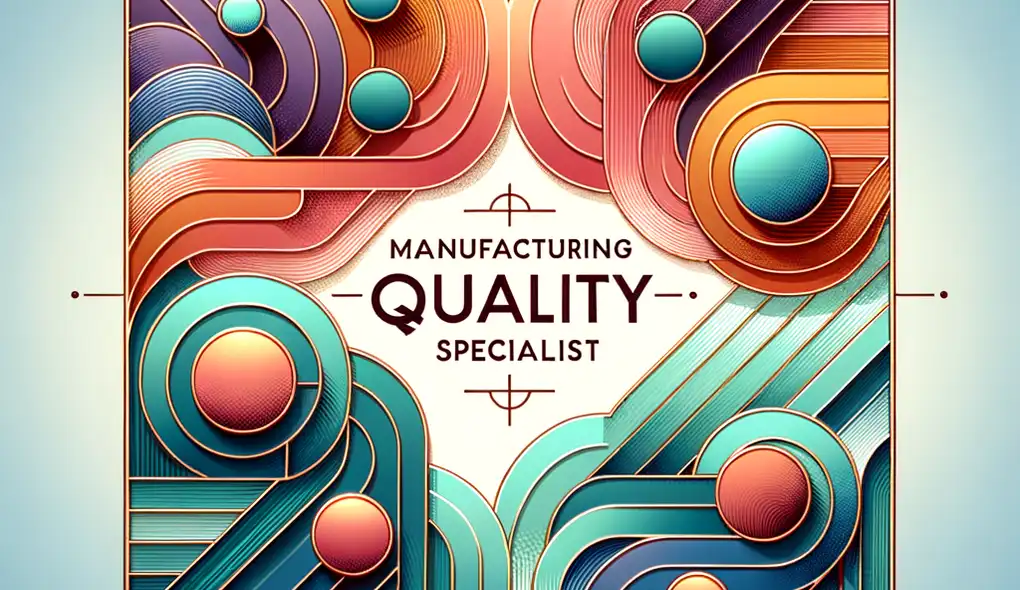How do you ensure continuous quality improvement in manufacturing processes?
Manufacturing Quality Specialist Interview Questions
Sample answer to the question
In order to ensure continuous quality improvement in manufacturing processes, I would first focus on gathering and analyzing data. By monitoring key performance indicators and using statistical tools, such as control charts and Pareto analysis, I can identify areas of improvement and prioritize them based on their impact. Additionally, I would collaborate with cross-functional teams to develop and implement improvement initiatives, such as lean manufacturing or Six Sigma projects. Regular audits and inspections would be conducted to ensure adherence to quality standards, and any deviations would be addressed promptly through root cause analysis and corrective actions. Continuous training and development programs would also be implemented to enhance the skills and knowledge of the manufacturing team. By fostering a culture of continuous improvement and empowering employees to contribute their ideas, I believe we can achieve sustainable quality improvements in our manufacturing processes.
A more solid answer
Ensuring continuous quality improvement in manufacturing processes requires a multi-faceted approach. Firstly, attention to detail is crucial in monitoring key performance indicators and analyzing data using statistical tools like control charts and Pareto analysis. This provides insights into areas that require improvement. Additionally, I would leverage my analytical and problem-solving abilities to identify root causes of quality issues and plan appropriate corrective actions. Leadership and team management skills come into play when collaborating with cross-functional teams to develop improvement initiatives like lean manufacturing or Six Sigma projects. These initiatives would involve implementing quality control protocols, performing regular audits, and addressing non-conformances through root cause analysis. Statistically significant data collected during audits and inspections would be analyzed and reported to management for effective decision-making. To promote a culture of continuous improvement, I would establish training programs that cultivate employees' skills and knowledge in quality improvement methodologies. By empowering employees and fostering teamwork, we can achieve sustainable quality improvements in manufacturing processes.
Why this is a more solid answer:
The solid answer includes specific examples of using statistical tools and quality control protocols, as well as continuous training programs. It also emphasizes the importance of leadership and team management skills. However, it could be further improved by mentioning risk assessment and management as well as proactive thinking.
An exceptional answer
To ensure continuous quality improvement in manufacturing processes, I would adopt a comprehensive approach starting with attention to detail. I would meticulously monitor key performance indicators and utilize statistical tools like control charts, Pareto analysis, and trend analysis to identify areas of improvement. Collaboration is essential, and I would actively involve cross-functional teams in developing and implementing continuous improvement initiatives. This could involve applying lean manufacturing principles, conducting Six Sigma projects, or using other methodologies. I would advocate for the integration of quality control protocols into the production process, ensuring that inspections and testing are conducted at critical stages. Additionally, I would establish regular quality audits to evaluate adherence to standards and identify opportunities for improvement. Root cause analysis would be conducted to address any quality issues, and corrective actions would be planned and implemented. Recognizing the importance of continuous learning, I would implement training programs that focus on quality improvement methodologies, technical skills, and regulatory compliance. Lastly, I would promote a proactive approach by analyzing trends, anticipating potential risks, and taking preventive measures. By consistently monitoring, analyzing, and adapting, we can achieve continuous quality improvement in manufacturing processes.
Why this is an exceptional answer:
The exceptional answer expands on the solid answer by including the use of trend analysis, the integration of quality control protocols into the production process, and the emphasis on proactive thinking and risk assessment. It also highlights the importance of continuous learning and the anticipation of potential risks. Overall, this answer provides a more comprehensive and detailed approach to ensuring continuous quality improvement in manufacturing processes.
How to prepare for this question
- Familiarize yourself with statistical tools and quality improvement methodologies such as lean manufacturing and Six Sigma.
- Review the job description and identify specific skills and qualifications related to continuous quality improvement.
- Prepare examples from your previous experience that demonstrate your ability to gather and analyze data, collaborate with cross-functional teams, and implement improvement initiatives.
- Research current trends and best practices in manufacturing quality control to stay updated and showcase your knowledge during the interview.
- Reflect on your leadership and team management skills, and be prepared to discuss how you have successfully led teams in implementing quality improvement initiatives.
What interviewers are evaluating
- Attention to detail
- Analytical and problem-solving abilities
- Leadership and team management
- Statistical analysis and reporting
- Continuous improvement methodologies
Related Interview Questions
More questions for Manufacturing Quality Specialist interviews